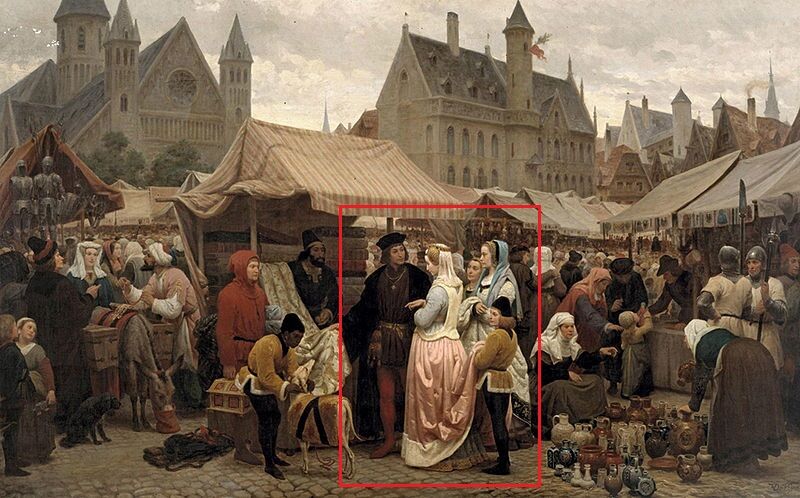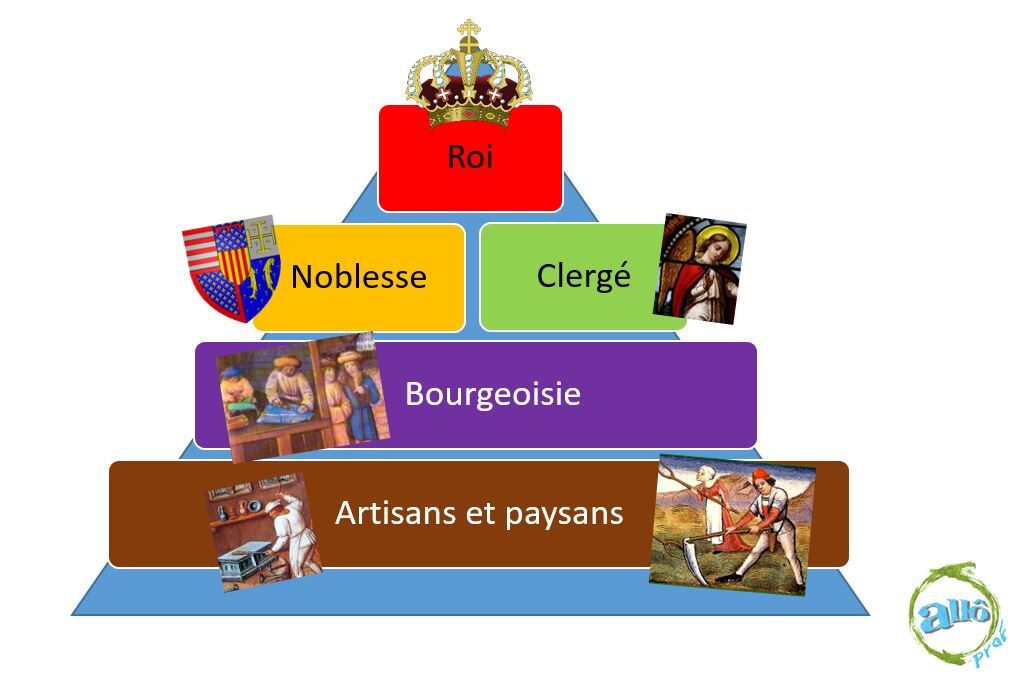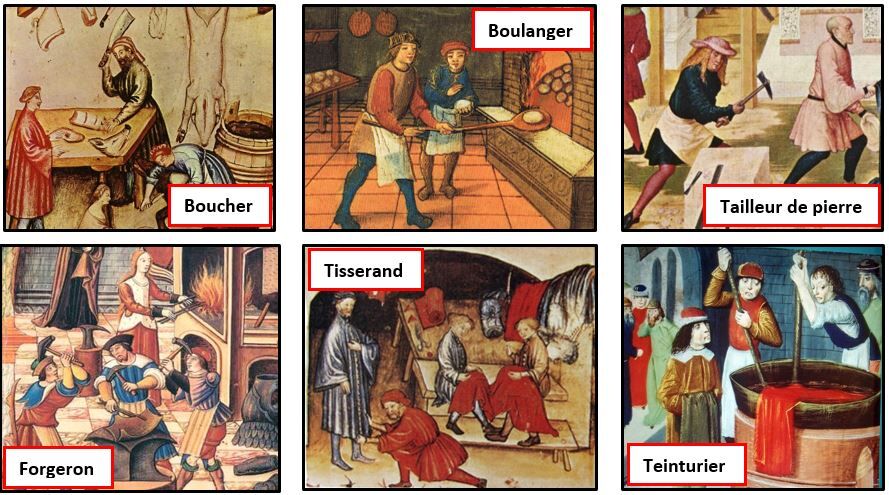From the 11th century onwards, the social organisation of the Middle Ages changed. Towns and trade became increasingly important in many parts of Europe. The social hierarchy divided between the three social orders (nobility, clergy and peasants) became more complex with the rise of the craftsmen and the arrival of the bourgeois.
As trade continued to grow, artisans took on a more important role in the countryside and in towns, as the goods they made were increasingly in demand. The goods are made entirely by the artisan, who may have the help of one or more apprentices or journeymen. So the artisan takes care of the initial creation, the purchase or manufacture of the necessary materials, the making of the product and, finally, its sale. The whole production process is very time-consuming. That's why artisans usually set up their workshops in their own homes.
Moreover, artisans generally group together in the same areas of towns and cities to facilitate trade. So there are neighbourhoods of weavers, blacksmiths, bakers, shoemakers and so on. Artisans practised a wide variety of professions: clothiers, dyers, butchers, carpenters, stonemasons, carpenters and so on. Despite their importance in the phenomenon of urbanization and trade, artisans did not have the same social status as the nobility, the clergy or even the bourgeoisie. Despite this, a number of them managed to accumulate small fortunes.

A protected caravan
A company is a group of artisans who practise the same profession. For example, there are companies for bakers, shoemakers, bricklayers, weavers and so on.
To become an artisan, there's a long apprenticeship process. First you have to be an apprentice, then a journeyman for several years. Most artisan trades are governed by a company. The role of each company is to regulate the procedure and length of training required to become an artisan. Corporations also set the price of goods and protect their members. For example, they offer to secure the transport of caravans with soldiers who protect the goods on roads full of brigands.

A bourgeois family at the Ghent trade fair in Belgium
Par ailleurs, un nouveau groupe social voit le jour avec l’expansion des villes: les bourgeois. On les appelle bourgeois parce qu’ils habitent les bourgs, un grand village qui s’est construit près d’un château fort. La plupart d’entre eux sont des marchands ou commerçants qui s’enrichissent avec le commerce local ou le Grand commerce. De façon générale, ces bourgeois achètent des produits des artisans ou des surplus de production des paysans en les revendant plus cher qu'ils les ont payés. De plus, ils voyagent beaucoup dans les villes et villages d’Europe d'une foire à l'autre. D’autres, comme l'Italien Marco Polo, se rendent même jusqu’en Asie pour acquérir directement les richesses exotiques et les revendre en Europe.
En plus de celles de commerçants et marchands, les bourgeois occupent différentes fonctions. Certains sont des légistes qui se consacrent à l’étude, à l’interprétation et à la rédaction de lois. D’autres sont des notaires qui élaborent des contrats commerciaux. Des changeurs font aussi leur apparition en se spécialisant dans l’échange de monnaie qui varie d’une ville à l’autre. Progressivement, la bourgeoisie se diversifie. Grâce à leur richesse et à leur influence dans les villes en plein essor, les bourgeois réussissent à obtenir de plus en plus d’influence dans la société. Certains établiront même des relations privilégiées avec des rois.
A new social group also emerged with the expansion of the cities: the bourgeois. They were called bourgeois because they lived in the burg, a large village built near a fortified castle. Most of them were merchants or shopkeepers who grew rich through local commerce or large-scale commerce. Generally speaking, these bourgeois bought products from artisans or surplus production from peasants and sold them for more than they paid for them. What's more, they travelled extensively throughout Europe from one trade fair or fair to the next. Others, like the Italian Marco Polo, even travelled as far as Asia to acquire exotic riches directly and sell them in Europe.
In addition to their roles as merchants and traders, the bourgeoisie held a number of other positions. Some were lawyers who devoted themselves to studying, interpreting and drafting laws. Others were notaries who drew up commercial contracts. Money-changers also appeared, specialising in the exchange of money, which varied from town to town. The bourgeoisie gradually diversified. Through their wealth and influence in the booming towns, the bourgeois managed to gain more and more influence in society. Some even established privileged relationships with kings.

